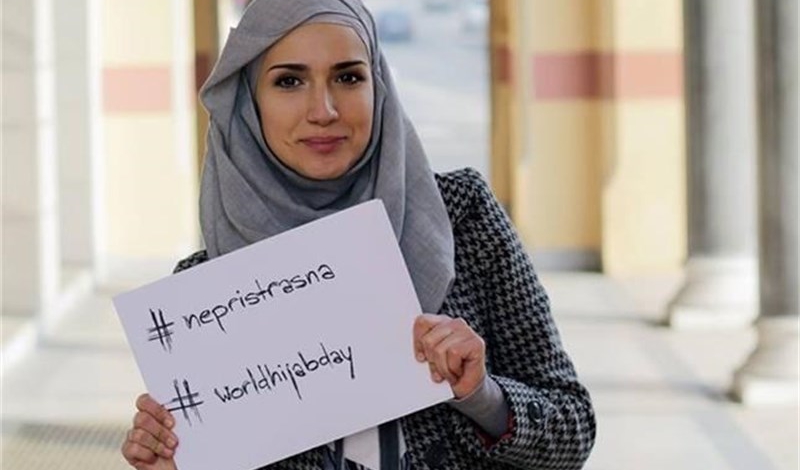Lawyers, prosecutors and others employed in judicial institutions can no longer wear the hijab to work. Whether third parties, such as witnesses, will be permitted to participate in hearings while wearing it will be determined on a case-by-case basis.
This is the first time such a decision has been made in Bosnia and Herzegovina. Although the decision was reached during two sessions in September and October 2015, it was only two weeks ago that the news of it broke, sparking an outcry among citizens and within the Muslim community.
The ban applies to the "religious symbols" of all religions.
But many have argued that while a crucifix necklace can be removed or concealed, the same is not true for a hijab, Al Jazeera reported.
Hanadi Salkica has been working as a lawyer since 2007 in the central city of Zenica. She says her hijab is not a religious symbol but a way of life and a personal style of dress.
She says she has never encountered a judge or anyone else in a courtroom who has looked at her differently because of it.
Salkica does believe that there has always been tacit workplace discrimination that has stopped hijab-wearing women from reaching certain positions. She says that there is not a single judge or prosecutor who wears a hijab.
A law stating that "judges and officials cannot show any kind of religious, political, national or other affiliation while performing official duties" has been in place in Bosnia and Herzegovina since 2003, but no one has tried to put it into practice until now.
Critics argue that the term "religious symbol" is vague and arbitrary and that the decision violates basic human rights such as the freedom of religion and the right to work as protected under the UN Declaration and European Convention on Human Rights and in all of Bosnia's constitutions.
Dermana Seta, master of religious studies and president of the Commission on Religious Freedom of the Islamic Community, says that these rights can be limited in a democratic society on condition that it is according to law, with a legitimate goal in mind and that the measures are proportionate to the needs. In this case, Seta says, none of these conditions has been met, nor was there a debate about it in parliament.
"Even if it appears as neutral and as if [the ban] applies to everyone, in reality it targets mostly one specific group - educated women who wear the hijab," Seta says. "This is something that this country cannot allow to happen - to exclude educated, professional women from the system."
Seta says that the decision is especially problematic because it implies that women who wear the hijab cannot carry out their job professionally because they are biased.
According to the preliminary results of the 2013 population census, 50 percent of Bosnia and Herzegovina's population is Muslim.
Bosnia and Herzegovina was one of the six republics that, for 50 years, formed the Socialist Federal Republic of Yugoslavia. As was the case with most communist countries, religion was discouraged and suppressed. The break-up of Yugoslavia and the collapse of communism in the early 1990s paved the way for individuals to practice their religion without fear of losing their jobs or being detained.
Salkica explains that today there are plenty of professional women who wear the hijab but face limitations in their careers due to discrimination, regardless of the field they are in.
Since news of the ban broke, online petitions have gone viral and marches have been held in various cities. On February 1, for World Hijab Day, hijab-wearing activists posted photos of themselves holding signs with the hashtag #unbiased.
This is not the first time the hijab has sparked controversy in the country. In 2012, Emela Mujanovic, an officer in Bosnia's armed forces, was suspended after she refused to remove her hijab. The case was taken to Bosnia's Constitutional Court, which concluded that her right to practice her religion had not been violated.
By Tasnim News Agency
# Tags











